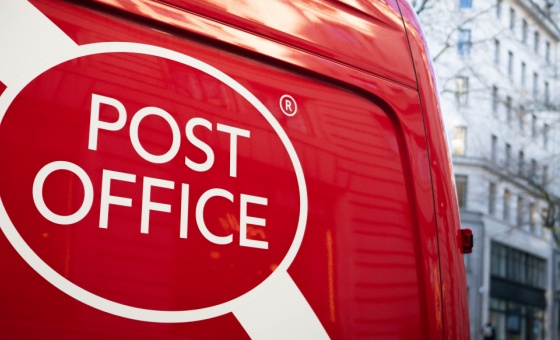This is the last article you can read this month
You can read more article this month
You can read more articles this month
Sorry your limit is up for this month
Reset on:
Please help support the Morning Star by subscribing here
THE recent violence in Israel has lead to a wave of tension and hysteria in the country and Israeli society has appeared very aggressive to the outside world. But there exists a leftist opposition, and this month has seen it organise a series of demonstrations across the country against the government, against the violence and calling for Arab-Jewish friendship.
These demonstrations have targeted the incitements to violence from Prime Minister Benjamin Netenyahu and his far-right ministers, as well as their failure to secure peace.
The demonstrations started with only a few hundred people but have since grown with a 4,000-strong demonstration held in Tel Aviv in recent weeks, and even larger actions planned.
At the rallies some of the most forceful rhetoric that has ever come from the Israeli left manifested in chants of: “Intifada government, go home” and the mayor of the Bedouin town Rahat getting huge cheers after he screamed that Netaynahu was an “idiot.” The promotional video for the main demo even warned that Netanyahu’s government is leading the country to an apocalypse with Israel becoming a state based on racism, hate and terror.
This has been fuelled by something new: a terrible fear Israelis have of their own government. Previously, Israelis often feared foreign governments like those of Iran or Egypt, but with Netanyahu wading into ever more extreme territory some Israelis are starting to wake up to the danger of their own government.
There has often been little trust among Palestinians towards the Israeli left, especially as the Israeli Labour Party was the first to build settlements and led many military actions against Palestinians. Yet these demonstrations have little or nothing to do with the Labour Party, which has never really been left-wing but is in effect the Israeli equivalent of Tony Blair’s New Labour.
Rather, the demonstrations have been organised by two smaller political parties, Hadash and Meretz, and the NGO Peace Now.
Hadash is officially a mixed Jewish-Arab political party with a strong communist faction, although the majority of its voters come from the Arab communities.
The party organised a rally recently in Israel’s third city Haifa and thanks to its lively youth wing the event passed off with a positive and hopeful atmosphere.
Hadash has four MPs in the Knesset and they often speak at rallies, especially Dov Khenin who is a communist and a veteran activist. Despite his far-left politics, in 2008 he managed to come second in the Tel Aviv mayoral race with 35 per cent of the vote and is one of the few people in Israel’s history who both Jews and Arabs respect.
Meretz is the largest left-wing party in Israel and got 4 per cent of the vote at the last election. Palestinians have rarely trusted it as it has always officially been a zionist party has been seen as the little brother of Labour, with its leadership at times supporting military actions during the second intifada.
But Meretz is a broad church and the members tend to be more sympathetic to Palestinians than its leaders are. Its origins lie in Marxist and anarchist Jews who before 1948 were opposed to a “Jewish state” in Palestine, although they worked within the zionist movement.
It strongly disagreed with the policy of other zionists towards
Arabs and warned for decades about Israel becoming a racist state with Arabs suffering the same racism in Israel that Jews had suffered in eastern Europe.
In 2012 the party leadership moved back to the left by electing its new leader Zehava Gal-On, who — in an almost historic move — refused to back the government in its assault on Gaza last year.
Its other MPs are even more left-wing, including one who is Arab, another who is a militant socialist and also a charismatic woman called Tamar Zandberg. Some have called Tamar the “Israeli Corbyn,” due to her popularity and membership of the far-left and anti-occupation faction within the party.
The success of Jeremy Corbyn in Britain, as well as the success of Syriza in Greece and Podemos in Spain, has excited people within this anti-occupation faction of Meretz. Some think it is only a matter of time before Tamar Zandberg becomes leader of Meretz and it, as well as Hadash, gains significantly more votes in elections to become major Knesset players.
While Arab citzens of Israel are often sympathetic to Meretz due to its defence of civil rights in the country, pro-Palestinian activists in Europe have often been disappointed with Meretz, as well as others on the Israeli left, seeing them as no better than the right wing.
There is some truth to this as the left is willing to protest only against settlers but not against soldiers. The unwritten rule is that they should never protest directly against the army.
As the majority of Palestinian deaths have been caused by the army and not by settlers, the criticisms may be valid. But it is important to note the amount of abuse the Israeli left recieves from other Israelis which makes it extra difficult to be an activist there.
In Britain, socialists have received death threats from people online that are offensive but are taken as mere empty threats. However Israel is a country where November 4 marks the 20th anniversary of the assassination of Yitzak Rabin, a prime minister killed for being “too left-wing.”
Physical attacks continue to be meted out against peace activists. Last month a rabbi was assaulted and almost stabbed by a settler due to his peace activism in the West Bank.
Political tension between left-wing and right-wing Israelis is omnipresent and has broken up many families. The result of all this hostility is that in private Israeli leftists are quite sympathetic to the Palestinians but in public they tend not to express these feelings in order to avoid conflict with other Israelis.
While this may be a mistake as it prevents an effective anti-Netanyahu alliance emerging between leftists and Palestinians, the emotional side of a century of conflict makes it difficult for people to make the right decisions.
However social media has helped the left be more effective, with Facebook and Twitter allowing them to properly express their ideas without the biased editing that the TV channels like to implement.
The main tool is an activist blog called +972, which publishes articles about the occupation, refugee issues and animal rights. It’s still small but it is growing fast and with 60,000 likes on Facebook and 40,000 followers on Twitter it’s a useful alternative voice.
The Israeli left is far from perfect, and perhaps weak at the moment, but it is an effective opposition that is not too shy to fight back and challenge the government.









